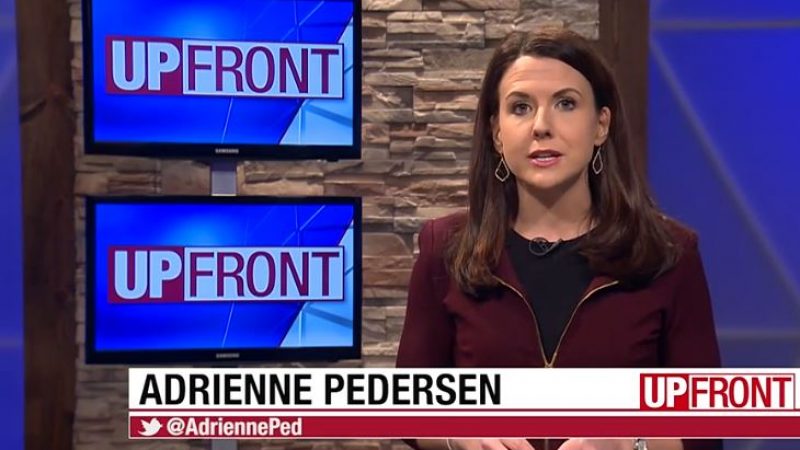A member of the state Republican Party’s executive committee says an endorsement vote will happen at the convention in May, defending the process that’s under fire from some candidates.
“I’ll say the great majority of candidates that came before the endorsement committee were supportive of the process,” Bill Feehan said on WISN’s “UpFront,” which is produced in partnership with WisPolitics.com.
Feehan is a member of the executive committee and chairman of the 3rd Congressional District GOP.
“There’s one candidate in particular that has run against the Republican Party and calls us political insiders,” he said.
>> WisPolitics is now on the State Affairs network. Get custom keyword notifications, bill tracking and all WisPolitics content. Get the app or access via desktop.
Feehan didn’t specifically call out Kevin Nicholson who has been highly critical of the process and the state party.
“Well, it is a machine,” Feehan said. “And you better have an organization with people that know how to run campaigns on a statewide basis.”
Nicholson launched an online petition in an attempt to force a “no endorsement” option and other county parties are calling for the same.
“What I would say to them is there already is a no endorsement option,” Feehan said. “For a candidate to reach 60 percent of support by the delegates is not guaranteed. There has been many times where a candidate has not reached that threshold.”
The rules, determined by the 27-member executive committee, require candidates for governor and U.S. Senate to raise at least $100,000 from at least 1,000 donors by March 15.
Feehan said the endorsement committee will hear from several more candidates and make recommendations for the full executive committee to approve before the convention.
“There is some disagreement between members of the committee about who should be allowed to participate in the endorsement process and who shouldn’t,” Feehan said. “And ultimately, those differences will be resolved by the state executive committee as a whole.”
Milwaukee Mayor-elect Cavalier Johnson said he’s spoken to Assembly Speaker Robin Vos and is expected to meet with him after being sworn-in Wednesday.
“He congratulated me on the victory, and we talked about building the relationship,” Johnson said. “He certainly wants to do that. I want to do that as well.”
Johnson partially blamed the city’s relationship with Madison on former Mayor Tom Barrett who held the post for some 18 years.
“Going back to especially not just his time in the Legislature but his time running for governor twice – in 2010 in an open seat and then in the recall election as well – and I think that’s part of the reason we saw this fracturing, and we were just never able to recover from that,” Johnson said. “It’s a new day in Milwaukee. Tom Barrett is gone, and now I’m here.”
Johnson also reaffirmed his support and endorsement of Democrat Alex Lasry in the U.S. Senate race.
“Just because we are willing to work together doesn’t negate the fact that I’m a Democrat or they’re Republicans,” Johnson said. “At the end of the day, though, when there’s a political competition I’m not expecting that they’re necessarily going to cross over or I necessarily will cross over. The politics is the politics, but when it’s time to govern, it’s simply time to govern.”
UW-Madison professor Gregory Nemet is one of a handful of American scientists who contributed to the United Nations report on climate change that will be presented to the UN’s climate change conference this fall.
“Based on the findings, the report says the problem is getting worse but the solutions to it are getting better,” Nemet said. “It took us 3,000 pages and three years to come up with that, but that’s basically the message here.”
He is a professor at the La Follette School of Public Affairs.
The report urges stronger policy commitments from nations and even individual states like Wisconsin.
Said Nemet: “Is it just more bad news because we’ve gotten a lot of bad news about pandemics and military conflicts, and climate change is another one. And what I actually come away from the report is actually being quite encouraged, that we’re not on track to deal with the problem, but there are emerging solutions that show us there’s a path to do it. We can reduce our emissions without sacrifice, without a lot of conflict. It’s really about making some changes and about investing in some of these things that are now competitive that will actually save us money over the longer-term.”
See more from the show:
https://www.wisn.com/upfront



